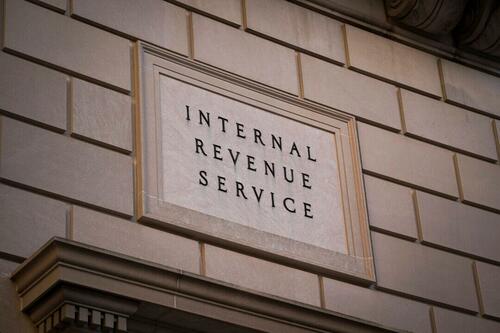Uncategorized
NASDAQ 100 Addresses Overconcentration By Rebalancing
In his podcast addressing the markets today, Louis Navellier offered the following commentary. NASDAQ 100 Rebalancing NASDAQ announced this week … Read…


In his podcast addressing the markets today, Louis Navellier offered the following commentary.
NASDAQ 100 Rebalancing
NASDAQ announced this week that it will rebalance its popular NASDAQ 100 index to “address over concentration in the index by redistributing the weights” of Amazon (NASDAQ:AMZN), Apple (NASDAQ:AAPL), Google (NASDAQ:GOOG), Meta (NASDAQ:META), Microsoft (NASDAQ:MSFT), Nvidia (NASDAQ:NVDA) and Tesla (NASDAQ:TSLA).
The changes will be announced on Friday, July 14th. There will be no additions or deletions. So the NASDAQ 100 stocks outside of the top 7 stocks should benefit from persistent institutional buying pressure.
This rebalance is actually intended to allow the NASDAQ 100 to stay in compliance with the SEC diversification rule that limits the aggregate weight of the largest stocks with 5% or more weights to 50%.
On June 3rd, these 7 companies accounted for 50.9% of the NASDAQ 100, which trigged NASDAQ to announce a “special rebalance” for the first time ever to comply with the SEC diversification rules.
Opposing NATO-Ukraine
President Biden is at a NATO conference in Lithuania this week and the mood was buoyed by Sweden becoming a new NATO member after Turkey dropped its opposition. Other NATO members wanted to provide Ukraine with a roadmap to join NATO, but President Biden has emerged as the leading opponent to granting Ukraine a speedy path to become a NATO member.
So even though NATO is effectively funding a proxy war with Russia by providing military aid to Ukraine, the Biden Administration is apparently afraid of an escalating war with Russia if Ukraine joins NATO.
The truth of the matter is there are a lot of disagreements within NATO, so Ukraine would be wise to convince NATO that a ceasefire and eventual peace agreement with Russia is necessary, because the war has become more futile as well as devasting for both Russia and Ukraine.
Endorsement Striking
Interestingly, the United Auto Workers (UAW) has not endorsed Joe Biden’s re-election, apparently because they are going increasingly uncomfortable with the Biden Administration’s big EV push. EVs have fewer parts than vehicles with internal combustion engines, so they require fewer UAW workers. Complicating matters further is that Tesla does not have UAW workers.
The UAW’s contract with Ford, GM and Stellantis expires in the next couple of months, so the uneasiness concerning EVs and inflation may cause the UAW to strike for more job security and higher wages.
President Biden’s approval rating now stands near an all-time low of 41%. Even worse, 54% of Americans disapprove of how President Biden is doing his job. According to the Labor Department, black workers made up about 267,000 of the 300,000 new unemployment cases this spring, so the Biden Administration is losing a key constituency.
Furthermore, the Fed reported that credit card debt officially hit a record high of over $1 trillion, so many households are clearly struggling with inflation.
Biden’s EV Quest Hits A Glitch
In the middle of America, especially flyover country where Americans tend to drive more, the Biden Administration’s quest to get consumers to switch to electric vehicles (EVs) has hit a glitch, despite Tesla’s 30% annual sales growth in the U.S. that was boosted by recent price cuts.
There is currently a 92-day supply of EVs sitting on dealer lots, compared to a 54-day supply for vehicles with internal combustion engines. Specifically, the weekly inventory of EVs for sale rose 342% in the past year to 90,000 in the second quarter.
Approximately 8% of U.S. vehicle sales are forecasted to be EVs this year, but affordability remains a big problem. Hyundai/Kia just passed GM for the #2 in U.S. sales, while Ford slipped to #5 in sales behind VW Group (Audi, Porsche and VW).
What Ford and GM are finding out is that the buyers of their EVs are not repeat buyers and are not loyal to their brands. As a result, the goodwill that Ford and GM built with their vast pickup and SUV sales is not apparently transferable to their EV models.
Ford is retooling its EV manufacturing plants to switch to iron phosphate (LFP) batteries, since it only sold 4,466 F-150 Lightning models in the second quarter with expensive lithium-ion batteries. VW Group has also curtailed production of its ID.4 EV, since it is apparently too expensive for most VW buyers due to expensive lithium-ion batteries.
I should add that VW Group has invested in a Chinese company, Gotion High Tech, which recently announced an LFP manganese (LMFP) battery that had 240 kwh of energy density, that is far superior to current LFP batteries and is significantly cheaper than lithium-ion batteries.
The ultimate winner of the EV race will likely be the manufacturer that makes affordable EVs with cheaper LFP or LMFP batteries, just like BYD has broken out as the market leader in China with its affordable EVs.
The manufacturing sector continues to sputter after eight horrible months and is now at its lowest level in three years. A year ago, Ford was #2 in U.S. EV sales, but has slipped to #5 after its core customers expressed reluctance to switch to expensive EVs.
The problem is related to expensive lithium-ion batteries as well as Tesla’s price cuts. As a result, all these battery plants that are being built in the U.S. may not be successful, unless they make more affordable LFP or LMFP batteries, simply because lithium-ion batteries are too expensive for many potential buyers.
In America, many folks like their pickup trucks, SUVs as well as their gas stoves, so any pressure from the government to make them switch to EVs as well as electric vs. gas appliances, is receiving a big pushback and hurts the Biden Administration’s approval rating.
Probably the best example of a pushback is occurring when New York City’s Department of Environmental Protection (DEP) proposed rules that would order restaurants to reduce their carbon emissions by 75%. This would require restaurant owners to buy expensive emission control devices on their pizza ovens, which also require expensive maintenance.
DEP Spokesman, Ted Timbers, said “All New Yorkers deserve to breathe healthy air and wood and coal-fired stoves are among the largest contributors of harmful pollutants in neighborhoods with poor air quality.” This brewing DEP war against iconic Italian restaurants and pizza joints in New York City is not going over well, where pizza fans are now chanting “Give us pizza or give us death.”
Obviously, many consumers do not like change, whether it has to do with vehicles, gas stoves or pizza is irrelevant. However, consumer sentiment has more to do with the cash in their pockets than their political beliefs. All I can foresee is that change is coming as the Biden Administration struggles with convincing Americans that they are doing a good job.
Consumer sentiment has more to do with the cash in their pockets and fortunately, many baby boomers have cash to spend. The Biden Administration recently dispatched its cabinet secretaries around the U.S. to convince voters that Biden economics is working. Unfortunately, there is no evidence that onshoring efforts are causing the manufacturing sector to improve, so ADP reported that there were 42,000 manufacturing layoffs in June.
Rolling Recovery
We are effectively in a “rolling recovery” where many Americans are being left behind. Thanks to Baby Boomers with cash to spend, the U.S. economy is still recovering. Specifically, economic growth has picked up due to an improving service sector as well as strong consumer confidence.
So all that can go wrong is if the Fed to continues to raise key interest rates, despite ample evidence of inflation cooling. However, I am more confident than ever that after this week the Fed will decisively hit the “pause button” due to favorable inflation evidence as well as the Labor Department’s lackluster payroll data.
It is very unfortunate that the Fed relies on unreliable economic data that is tainted by wild seasonal adjustments as well as seemingly endless revisions. The good news is the Fed likes to stay out of the political spotlight, so I expect that they will commence cutting key interest rates in December and continue to cut in the first half of 2024 to stimulate overall economic growth.
Coffee Beans: Under the Sea
Hundreds of divers and snorkelers listened to an underwater concert that advocated coral reef protection last Saturday in the Florida Keys. The oceanic playlist included the Beatles’ “Yellow Submarine,” Jimmy Buffett’s “Fins” and the theme from “The Little Mermaid.” The music was piped undersea through waterproof speakers suspended beneath boats above the reef. Source: AP News. See the full story here.












